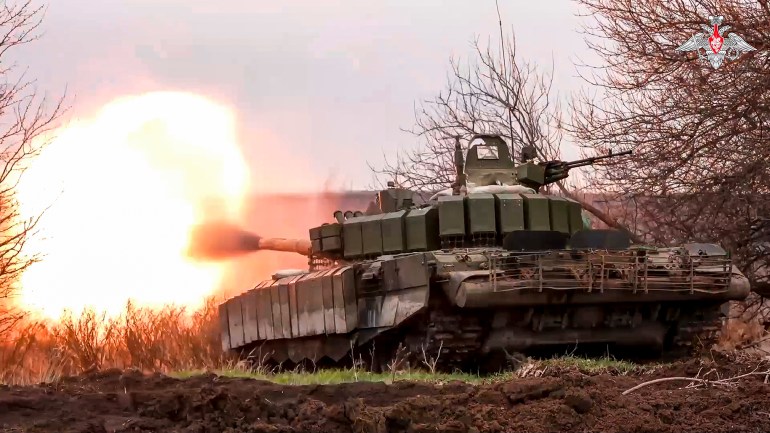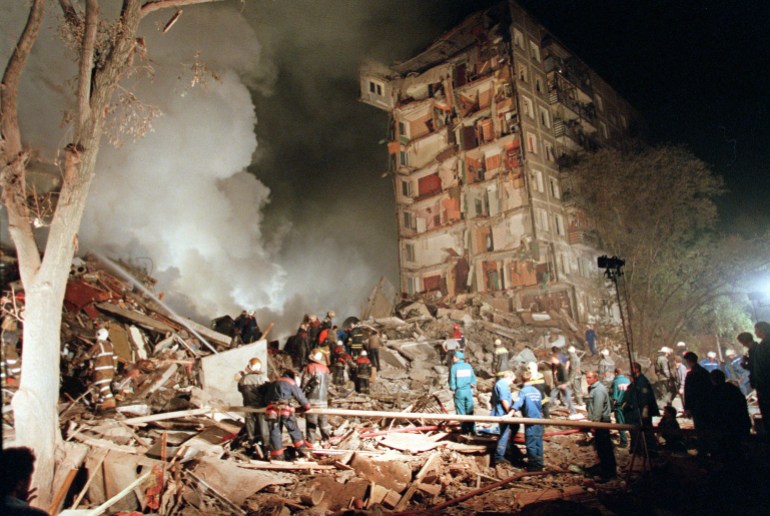Aleksandra Chanysheva is convinced that lax security is what made the Friday night attack on a concert hall just northwest of Moscow possible.
“Guards are the most ridiculed and underpaid people in Russia,” the 51-year-old teacher of Russian language and literature at a public school told Al Jazeera. “And they do their work in the worst way possible.”
The attack on the Crocus City Hall killed at least 133 people, including three children, and wounded more than 100 others, Russian investigators said on Saturday.
Several heavily armed, camouflage-wearing men sprayed a crowd of spectators that gathered to hear Soviet-era rock band Picnic with bullets, set the building on fire and escaped in a “white Renault,” officials said.
Some experts agree with Chanysheva – given post-Soviet Russia’s history of lethal attacks on crowded public places that dates back to when Moscow started the second Chechen war a quarter of a century ago. But other analysts and Russian opposition groups argue that an even darker possibility cannot be ruled out: they point to potential political gains for President Vladimir Putin from the Friday massacre.
Back in the late 1990s, Chechen separatists and fighters from the mostly Muslim North Caucasus region, launched a wave of attacks, seizing concert halls, hospitals and public schools; sending suicide bombers to Moscow’s sprawling subway system; and detonating explosives on buses and planes.
The Friday attack “showed complete impotence” of Russia’s special services, national guard and the entire law enforcement system, Nikolay Mitrokhin, research fellow at Germany’s University of Bremen told Al Jazeera.
The intelligence services received repeated warnings from the West – including a public alert from the United States on March 8.
Moscow, Russia: The Embassy is monitoring reports that extremists have imminent plans to target large gatherings in Moscow, to include concerts, and U.S. citizens should be advised to avoid large gatherings over the next 48 hours. As a reminder, our Travel Advisory for Russia is… pic.twitter.com/J5oLgOvFY4
— Travel – State Dept (@TravelGov) March 7, 2024
“The Embassy is monitoring reports that extremists have imminent plans to target large gatherings in Moscow, to include concerts, and US citizens should be advised to avoid large gatherings over the next 48 hours,” the country’s mission in Moscow wrote on X.
But days later, on March 19, Russian President Vladimir Putin snubbed that warning about possible attacks in Moscow, and described it as “blackmail”.
A brand new, comprehensive face-recognition system across Moscow that has been widely used to identify opposition protesters also failed to stop Friday’s attack.
And it took authorities an hour and a half to deploy special forces to the site in the Moscow suburb of Krasnogorsk because of heavy traffic jams.
“Where are the helicopters for speedy deployment to critical sites in the metropolitan conditions of Moscow? Where are the armed vehicles? Where are these pumped-up stern guys from [promotional] videos?” Mitrokhin asked.
“We know where they are – burned down with their vehicles on the roads of the Kyiv region, sitting in underground holes near Donetsk or patrolling the Luhansk region … not where the real danger is but there the crazy president decided to wage a war,” he said.
Table of Contents
ISIL claims responsibility
The Afghan arm of ISIL/ISIS – known as the Islamic State in Khorasan Province or ISIS-K – has claimed responsibility for the attack via the Telegram channel of Amaq, a media outlet affiliated with the group.
It said its fighters attacked “a large gathering of Christians”, killing and wounding hundreds and causing “great destruction” before withdrawing “safely”. ISIS-K is waging a war on the Taliban movement that seized power in Afghanistan after the withdrawal of US forces in 2021.
Even though Moscow still lists the Taliban as a “terrorist group,” it has intensified contact with it, welcoming its emissaries in Moscow and to regional security conferences.
The US has said that its intelligence backs up the ISIL claim of responsibility for the attack.
But neither Kremlin-controlled media nor Putin’s opponents are as convinced.

Russia points finger at Ukraine
“These claims could be a fake smokescreen and need a thorough check,” according to an editorial in the Moskovskiy Komsomolets, a pro-Kremlin tabloid, published on Saturday.
Politician Alexander Khinstein claimed that early on Saturday, Russian police stopped a car with suspected attackers in the western Bryansk region that borders Ukraine and Belarus.
Two suspects have been apprehended after a shootout and the remaining passengers fled to the forest, he claimed on Telegram.
Tajik passports were found in the car along with a pistol and ammunition, he claimed, citing police sources. Tajikistan borders Afghanistan, and its residents speak a language related to Farsi.
By Saturday afternoon in Moscow, Russia’s Federal Security Service, better known as the FSB, claimed to have detained 11 men, including four alleged attackers. It said they were going to cross into Ukraine, where they had “contacts”.
In response, a Ukrainian think tank blamed Russian special services. They organised the attack “in order to blame Ukraine and find an excuse for a new mobilisation in Russia,” the Ukrainian Center to Counter Disinformation said in a statement quoted by the Kyiv-based UNIAN news agency on Saturday.

Memories of Russia’s dark 1990s resurface
Other independent experts also questioned the suggestions of ISIL’s responsibility for the attacks.
“Very probably, Russian special services knew about [the attack] beforehand, and, possibly, they directed it pursuing political goals – to possibly discredit Ukraine, justify a new wave of mobilisation and tighten the screws in general,” Alisher Ilkhamov, head of Central Asia Due Diligence, a think tank in London, told Al Jazeera.
“One just has to ask a question – who will benefit? I’m somewhat doubtful that ISIL has any serious interests in Russia,” he said.
Putin, on the other hand, does gain from the attack, Ilkhamov said. “To become a victim of ISIL is to trigger sympathies worldwide. This is some sort of a public relations [trick] to improve [Russia’s] international reputation. So, there’s a whole bunch of benefits for Putin’s regime,” he said.
“Of course, that cost the lives of his citizens – that he spits on.”
Conspiratorial as these suggestions may seem, they are rooted in what many Putin critics allege is a history of potential false flag operations used by the Russian president to strengthen his political standing.
Putin, a former spy in Germany who briefly headed the FSB, was appointed prime minister in 1999. Months later, explosions at apartment buildings killed dozens of people. The Kremlin blamed Chechen separatists and used the attacks as a pretext to start the Second Chechen War: Putin’s approval ratings skyrocketed and paved the way for his first election as president in 2000.
Fugitive ex-FSB officer Alexander Litvinenko claimed that Putin ordered the attacks. Putin repeatedly called him a “traitor,” and in 2003, Litvinenko died an agonising death in the United Kingdom after being poisoned with radioactive polonium. The UK said Putin “may have been” behind the murder.
A Russian opposition group also referred to the late 1990s to suggest that Putin’s own hand in the Moscow killings could not be ruled out.
“We remember how Putin’s regime and his special services paved the way to the Second Chechen War,” the Forum for Free Russia, an alliance of exiled opposition activists, said in a statement.
“It’s highly possible that this terrorist attack was organised by Russian special services. If it is so, then we can surely expect that the responsibility for this attack will be blamed on Ukrainians or on armed Russian opposition,” it said.
Reference :
Reference link























+ There are no comments
Add yours